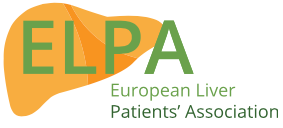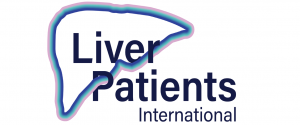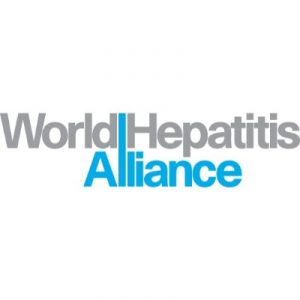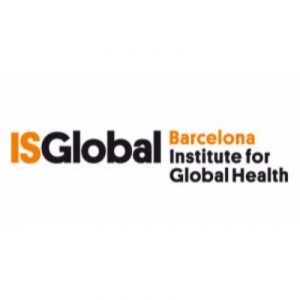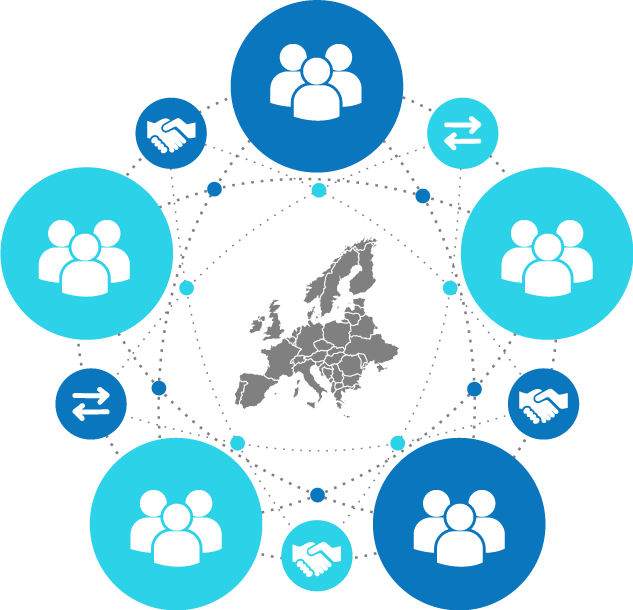
The ACHIEVE ambition is to see the elimination of viral hepatitis in Europe by 2030.
ACHIEVE Call to Action for the new EU legislature 2024-2029
Viral hepatitis B and C are two deadly viruses whose burden is greater than HIV/AIDS and Tuberculosis combined.
According to the WHO Global Strategy from 2016, which builds on the UN Sustainable Development Goals (SDGs), viral hepatitis B and C can be eliminated by 2030. An effective vaccine exists for hepatitis B, and affordable, easy-to-administer, effective treatments are available for both hepatitis B and C. For hepatitis C, the cure rate is almost 98% and, in the absence of a vaccine, treatment in addition to the harm reduction measures serves also as prevention for virus transmission. Hepatitis B vaccination also prevents co-infection hepatotropic viruses, such as hepatitis D, which puts patients at risk.
However, the EU as a whole is not on track for elimination, leading to significant inequalities across Europe. This is nothing short of a tragedy for those infected, those at risk of becoming infected, their families, Europe’s health and social systems, and the economy. This tragedy can and must be prevented.
Read the ACHIEVE Call to Action for the new EU legislature 2024-2029 to find out more about the key obstacles to viral hepatitis B and C elimination, the EU mechanisms that exist and can help, and which actions the different actors (Member States, Stakeholders, European Commission and European Parliament) can take to eliminate viral hepatitis B and C in the EU/EEA.
ACHIEVE Coalition perspective on EU4Health 2024 priorities to help drive forward viral hepatitis elimination across the European Union
The ACHIEVE Coalition is proud to have provided input in the European Commission’s stakeholders targeted consultation for its EU4Health Annual Work Programme 2024. This consultation is an important opportunity for us to ensure that projects and initiatives aimed at driving forward viral hepatitis elimination are among the EU4Health annual funding priorities.
While the European Commission’s survey does not provide extensive space for arguments, we recognize the importance of advocating for this critical issue. As such, the ACHIEVE Coalition has put together the “ACHIEVE Coalition perspective on EU4Health 2024 priorities to help drive forward viral hepatitis elimination across the European Union”, to complement our input to the European Commission’s EU4Health consultation survey.
If you would like to learn more about our perspective on this issue, we encourage you to read our document by clicking the button below. Together, we can work towards a world where viral hepatitis is no longer a threat to public health.
Webinar: MEP Friends of the Liver Group Call to Action ‘The EU must lead on viral hepatitis elimination by 2030’
On the 25th of April, from 9:30 to 10:30 CET, the European Association for the Study of the Liver (EASL) together with the ACHIEVE Coalition organise a webinar on the EU Health Policy Platform, to discuss the needed actions to collectively meet the WHO’s 2030 viral hepatitis elimination deadline and also make a significant contribution to ensure that viral hepatitis is eliminated in the EU neighbourhood and globally, supporting low-income countries.
The MEP Friends of the Liver Group hosted on October 2022 an event titled ‘The final push to eliminate viral hepatitis – how can the EU lead the successful achievement of this global public health priority?’ in the European Parliament. The event was supported by the European Association for the Study of the Liver (EASL) and the ACHIEVE Coalition.
Whilst a lot has been achieved with the recognition of viral hepatitis B and C in Europe’s Beating Cancer Plan and EU4Health funding, it is equally clear that a lot must and can be done to ensure that the EU collectively meets the WHO’s 2030 elimination deadline and also makes a significant contribution to ensure that viral hepatitis is eliminated in the EU neighbourhood and globally, supporting low-income countries.
A Call to Action for the EU, European Commission, and EU Member States to lead on viral hepatitis elimination by 2030 was put together with the insight generated during the event, which has been endorsed by several MEP Friends of the Liver Group Members.
This webinar aims to present the MEP Friends of the Liver Call to Action’s key objectives and receive feedback from participants on how to turn them into actionable initiatives. Join us and be a part of the MEP Friends of the Liver’s journey toward eliminating viral hepatitis by 2030.
This webinar will be held in English.
Support for European Commission work on vaccine-preventable cancers
Input to the call for evidence
The ACHIEVE coalition appreciates the Commission’s work on a proposal for a Council Recommendation on Vaccine-Preventable Cancers. Increasing access and uptake of vaccination against Hepatitis B for infants/children and all adults at risk, as well as closing existing data gaps, will make a significant contribution to reducing the cancer burden. ACHIEVE calls on Member States to follow the European Commission in its approach.
LAUNCH OF THE STORIES TO INSPIRE GOOD PRACTICES COMPENDIUM (2022 EDITION)

On Tuesday 26 October, the ACHIEVE coalition launched the Stories to Inspire Good Practices Compendium (2022 Edition) a collection of good practices to fight viral hepatitis B and C from Europe and beyond. It also includes messages of support from John Ryan (Deputy Director General for Health, DG SANTE, European Commission) and Members of the European Parliament.
Click here to discover our website where you can navigate through the Stories from Europe and all around the globe.
ACHIEVE PAPER ON INEQUALITIES IN LIVER CANCER PREVENTION LINKED TO VIRAL HEPATITIS B (HBV) ANd C (HCV) SERVICES
The ACHIEVE Paper on hepatitis-related cancer Inequalities was put together at the request of the European Commission who are currently working on an EU Cancer Inequalities Registry and were keen to include liver cancer prevention. We trust that our contribution will be useful to feed into the Registry, which will include liver cancer.
Please read here the ACHIEVE coalition Cancer Inequalities Paper.
25 OCTOBER EVENT REPORT: ‘ THE FINAL PUSH TO ELIMINATE VIRAL HEPATITIS – HOW CAN THE EU LEAD THE SUCCESSFUL ACHIEVEMENT OF THIS GLOBAL HEALTH PRIORITY? ’
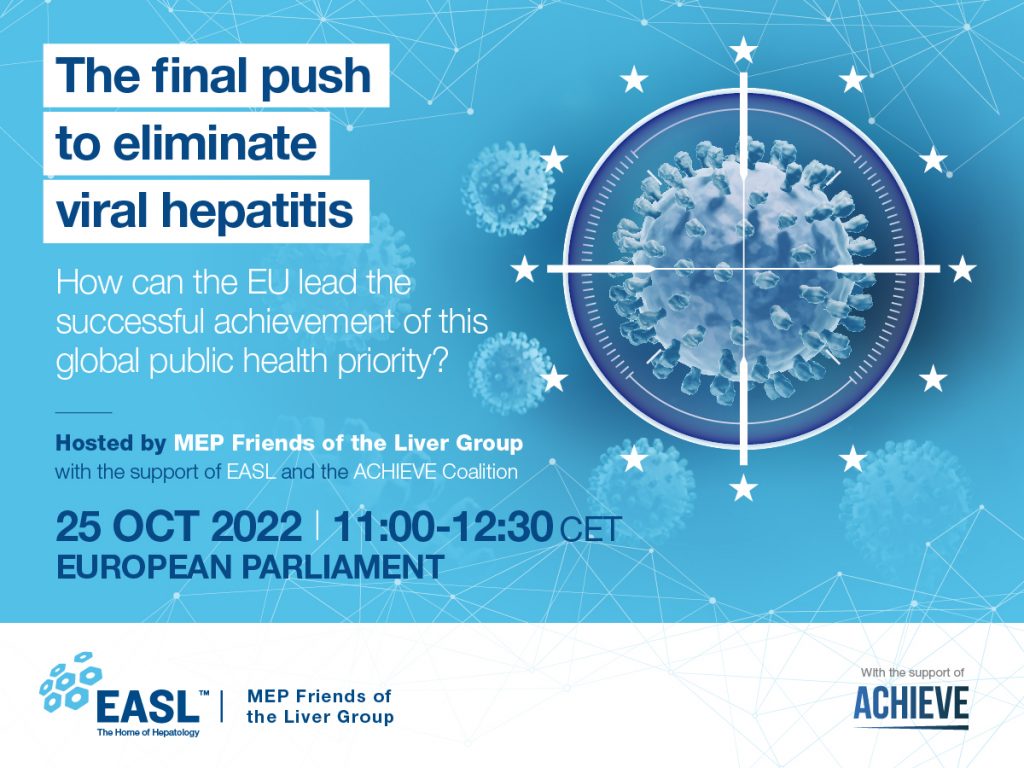
On Thursday October 25 2022, MEP Friends of the Liver Group held a high-level event with the support of EASL (European Association for the Study of the Liver) and ACHIEVE.
The event was moderated by Cyrus Engerer MEP (S&D, Malta), Co-Chair MEP Friends of the Liver Group; Dr. Cristian-Silviu Busoi MEP (EPP, Romania); Dr. Andrey Kovatchev MEP (EPP, Bulgaria).
Panellists included Rimalda Voske, Directorate-General for Health and Food Safety (DG SANTE), European Commission; Dr Virginija Dambrauskaite, Directorate-General for International Partnerships (DG INTPA), European Commission; Dr Lina Nerlander, European Centre for Disease Prevention and Control (ECDC); Georges Kalamitsis, ACHIEVE Co-Chair; Professor Maria Buti, EASL EU Policy Councilor; Dr Sandra Dudareva, Robert Koch Institute, Head of WHO Collaborating Centre for viral hepatitis and HIV, and Professor Daniel Kelly, European Cancer Organisation (ECO). The event resulted in a Call to Action endorsed by the MEP Members of the Friends of the Liver Group, EASL and ACHIEVE. Please find the Call to Action and the event’s report, which includes its main highlights, below.
World Hepatitis Day 2022: Hepatitis Can’t Wait
The message of World Hepatitis Day 2022 could not be clearer: Hepatitis Can’t Wait.
We are delighted to share the powerful video message of Mr. John Ryan, DG SANTE Acting Deputy Director General and Public Health Director.
In June 2022, the World Health Assembly reiterated that meeting the elimination targets for viral hepatitis B and C by 2030 is still within reach. The final push to eliminate viral hepatitis is NOW. We must work together to advance hepatitis elimination.
#HepatitisCantWait #ICantWait
Setting the course for Hepatitis elimination: what the EU can do to help reach the WHO 2030 goal
7 December 2021 | 10:00 – 12:30 CET | High-level virtual event
The ACHIEVE Coalition held high-level event ‘Setting the course for Hepatitis elimination: what the EU can do to help reach the WHO 2030 goal’ (7 December 2021,10:00 – 12:30 CET).
Please find the agenda here.
At the event, it was disscused how EU policy and funding measures can advance the elimination of viral hepatitis B and C in Europe and beyond, with a high-level panel of speakers from WHO Europe, the European Commission – DG SANTE, the European Centre for Disease Prevention and Control (ECDC) and the European Monitoring Centre for Drugs and Drug Addiction (EMCDDA).
As emphasised by the ECDC and WHO on World Hepatitis Day 2021, the elimination of hepatitis by 2030 is still feasible but only if the gaps in prevention, diagnosis, treatment and lack of reliable national data are urgently addressed. Whilst he ongoing COVID-19 pandemic has exacerbated these gaps, it has also shown how much we can achieve in the fight against communicable diseases when we act acoordinated.
Speakers include:
- Dr. Siddhartha Datta, Acting Director for Communicable Diseases, Country Health Programme Division, WHO Regional Office for Europe
- John F. Ryan, Deputy Director for Public Health Directorate, DG SANTE, European Commission
- Alexis Goosdeel, Director, European Monitoring Centre for Drugs and Drug Addiction (EMCDDA)
- Dr. Cristian-Silviu Busoi MEP, former rapporteur on EU4Health, EPP, Romania
- Dr. Erika Duffell, Principal Expert Hepatitis, STI, Bloodborne Viruses, DPR at European Centre for Disease Prevention and Control (ECDC)
- Professor Markus Cornberg, Deputy Director of Clinic for Gastroenterology, Hepatology and Endocrinology, Hannover Medical School
- Maria Georgescu, Executive Director of the Romanian Anti-SIDA Association (ARAS)
- Dr. Sandrine François and Céline Rigaud, Limoges University Hospital
- Professor Thomas Berg, Secretary General of the European Association for the Study of the Liver (EASL), Head of the Division of Hepatology, Leipzig University Medical Center
Please feel free to share this within your organisation and network.
ACHIEVE CONTRIBUTES TO EUROPEAN PARLIAMENT ‘CHALLENGE CANCER’ INTERGROUP EVENT ON ‘OPPORTUNITIES FOR HEPATITIS-RELATED CANCER PREVENTION IN EUROPE’S BEATING CANCER PLAN
On the occasion of Liver Cancer Awareness Month, the European Parliament ‘Challenge Cancer’ Intergroup hosted the virtual event ‘Opportunities for Hepatitis Related Cancer Prevention in Europe’s Beating Cancer Plan’. The webinar, which took place on 28th October, discussed how the implementation of Europe’s Beating Cancer Plan can make a significant contribution to reducing hepatitis-related liver cancer.
Europe’s Beating Cancer Plan has rightly recognised hepatitis B vaccination and hepatitis C treatment in the context of cancer prevention. Unfortunately, the awareness of viral hepatitis B and C as preventable cancer risk factors is not always well understood. This is true for the general public, specific risk groups, and even amongst healthcare professionals. The event was organized with the support of the European Cancer Patient Coalition (ECPC), the Association Collaborating on Hepatitis to Immunize and Eliminate the Viruses in Europe (ACHIEVE) and the European Association for the Study of the Liver (EASL).
MEP Aldo Patriciello, Co-Chair of the Challenge Cancer Intergroup and BECA member, highlighted in his opening remarks: “Scientists from the International Agency for Research on Cancer have pointed out that tackling viral hepatitis B and C is essential to significantly prevent cancer and reduce its burden, which is significant also for European countries. My amendments to the draft BECA report ‘Strengthening Europe’s report in the fight against cancer’ thus aim to ensure that we make full use of the tools available in Europe’s Beating Cancer Plan to prevent hepatitis-related liver cancer, including adding liver cancer to the list of recommended screening programmes.”
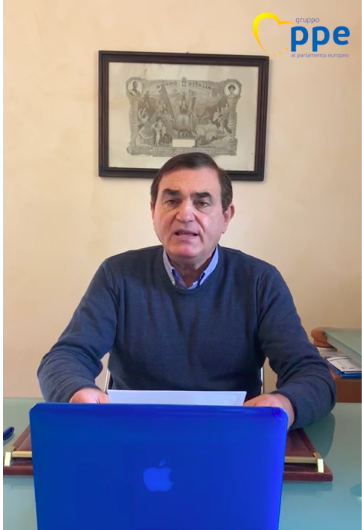
To better prevent hepatitis-related liver cancer, Professor Romana Jerković MEP, BECA member, highlighted the importance of the Council Recommendation on vaccine preventable cancers, as well as means to improve people’s health literacy, such as the EU Mobile App for Cancer Prevention and an updated European Code Against Cancer. MEP Jerković also highlighted the need for Member States to work more closely together: “There are huge inequalities across Member States. One of the future goals will be European Health Union. Although Member States are responsible for health, we have had lots of problems in common so we can be successful in beating cancer and other diseases if we are united and share good practices.”
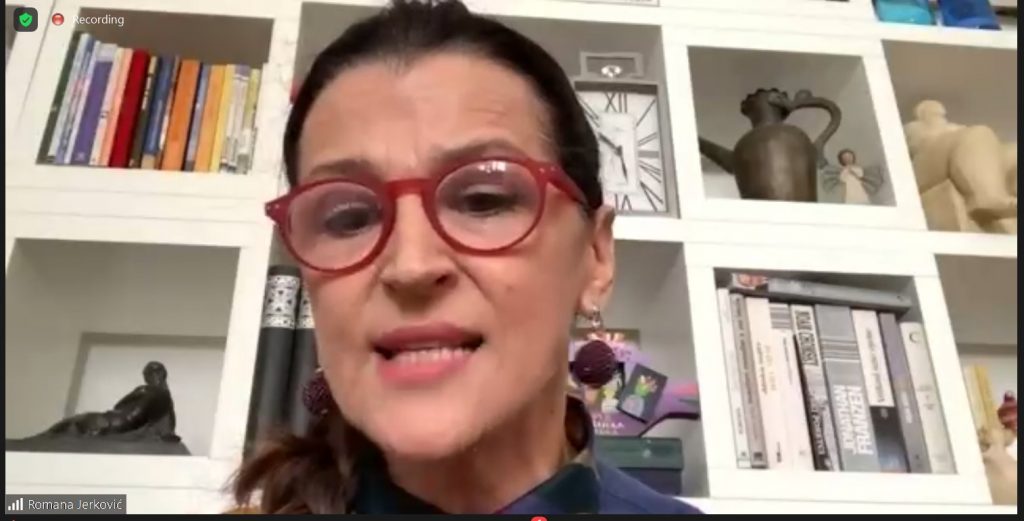
MEP Radan Kanev, Member of the ENVI Committee, stated: “We must make sure that the elimination of viral hepatitis B and C through greater awareness of transmission risks, vaccination against hepatitis B for all children and adult risk groups, a much higher diagnosis rate and linkage to care and cure for hepatitis B and C, will be embedded in both the Europea and also national cancer plans as effective means to prevent cancer. We must not forget, that the vast number of people infected with viral hepatitis B and C, many of whom are part of vulnerable populations, are still undiagnosed. Finally, we need better monitoring throughout Europe, so we are no longer flying blind. The ECDC mandate extension, which is currently under discussion in Trilogue, can make a significant contribution in this regard and support Member States.“
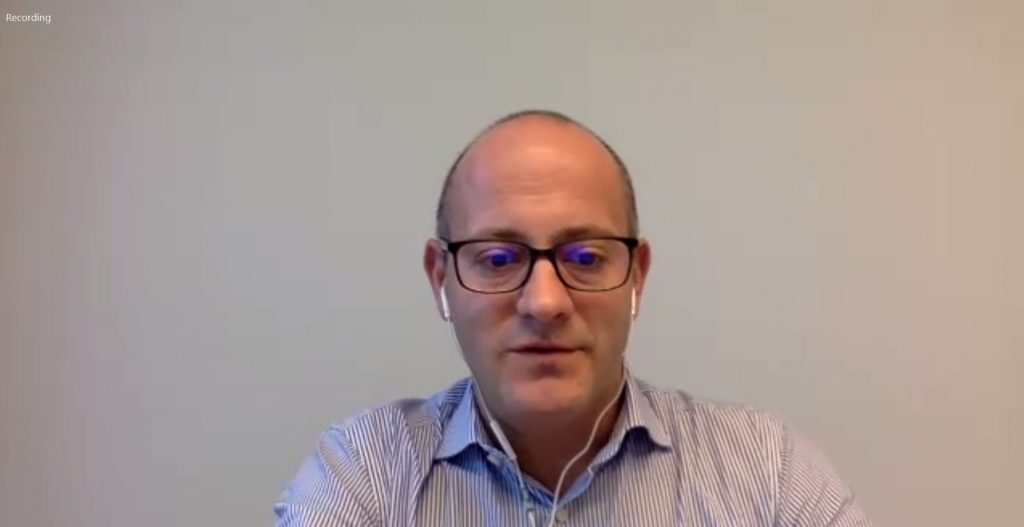
Professor Peter Jepsen, Policy and Public Health Committee EASL, highlighted that over the past two decades, there has been a 70% increase in liver cancer-related mortality in the region and the fact that Viral hepatitis types B and C cause liver cirrhosis and liver cancer. 80-90% of patients with liver cancer have an underlying chronic liver disease: liver cirrhosis which a is a steppingstone towards liver cancer. He called on policymakers to catch “2 birds with 1 stone: eliminate viral hepatitis types B and C and thus eliminate risk factors for liver cirrhosis and liver cancer”.
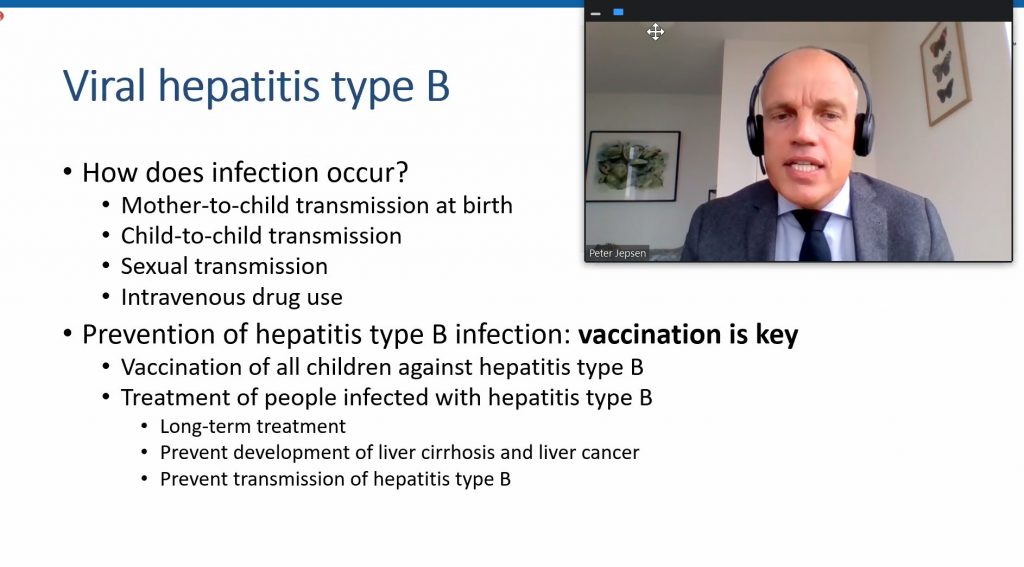
Professor Maria Buti, EU Policy Councillor and member of the governing board of the European Association for the Study of the Liver (EASL) highlighted: “Chronic HBV and HCV infections are often asymptomatic until later stage. 2/3 of adults with HBV and 1/3 with HCV are unaware of their condition. To eliminate/control hepatitis viruses by 2030, we must improve prevention, screening, and linkage to care targets”. Prof. Maria Buti told the available tools and instruments to achieve these goals and at the same time reduce the risk of liver cancer by implementing prevention programmes for HBV through vaccination and treatment and for HCV through screening and treatment as prevention.
ACHIEVE (Associations Collaborating on Hepatitis to Immunize and Eliminate the Viruses in Europe), Co-Chair and former Hepatitis C patient George Kalamitsis stated: “We must share information about the transmission risks for viral hepatitis B and C, about testing and treatment options, when informing people onhowtolowertheircancerrisk. Initscurrentform,theEuropeanCodeagainstCancerfailstodothis.This is why we need to update the European Code Against Cancer urgently.”
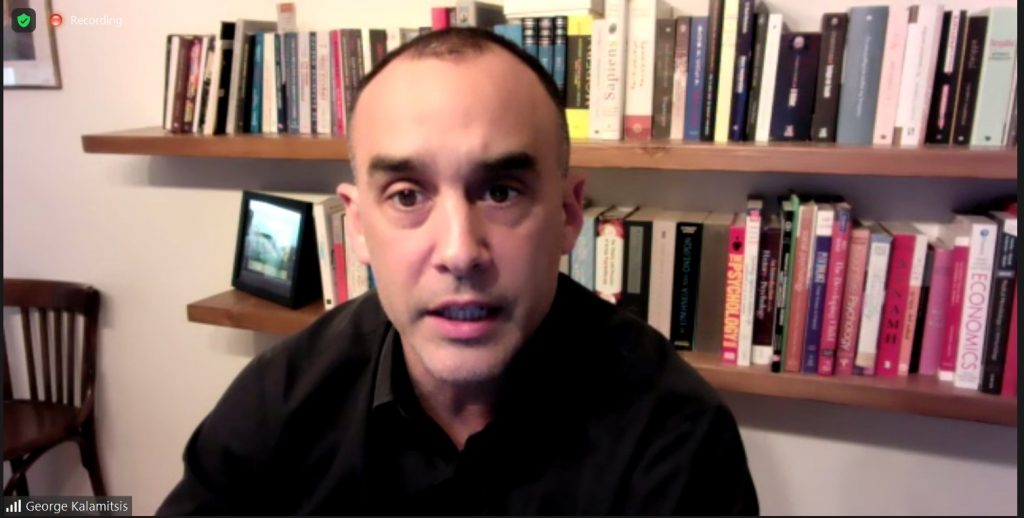
About Hepatitis and Liver Cancer – Europe’s deadliest preventable cancer
Viral hepatitis B and C, recognised by WHO as cancer-preventable risk factors, are responsible for up to 76% of all liver cancer cases worldwide.1 Hepatitis B is preventable with a safe and effective vaccine available, as well as treatments to manage the infection. Hepatitis C is curable. In the European Union, around 10 million people live with chronic hepatitis B and C and a majority are undiagnosed.2 Every year up to 90,000 people with chronic viral hepatitis develop liver cancer.3 Liver cancer has the lowest survival rate among all cancers monitored by the European Commission,4 making it the deadliest preventable cancer in the EU. Modelling suggests that cancer prevention efforts targeting viral hepatitis C could reduce liver cancer incidence by 70% and liver-related death by 65%,5 especially among high-risk groups who are associated with higher incidence rates.6 As highlighted by researchers from IARC, greater efforts to tackle important infections, namely viral hepatitis B and C, could make a significant contribution to prevent cancer and reduce the cancer burden.7
Hepatitis Elimination by 2030 – The need for urgent action
In 2016, EU countries committed to combat and end hepatitis as a public health threat by 2030, in line with the WHO targets and the UN SDGs. Five years later, it is increasingly clear that the target will not be met unless countries urgently address the massive gaps in vaccination, treatment, diagnosis and linkage to care and data generation. Whilst COVID-related disruptions have worsened the situation and reversed progress, the pandemic has also shown how much countries can achieve in communicable disease control in a short time span.
References
De Martel C, Georges D, Bray F, Ferlay J, Cliffor GM (2020). Global burden of cancer attributable to infections in 2018: a worldwide incidence analysis. The Lancet: Global Health, 8(2).
ECDC (2019). Systematic review on Hepatitis B and C prevalence in the EU/EEA, p. 2. Available at https://www.ecdc.europa.eu/en/publications-data/monitoring-responses-hepatitis-b-and-c-epidemics-eueea-member-states-2019
European Cancer Organisation. (2020) It Can Be Done – Beating Inequalities in Cancer Care. Action Report. Accessed from http://www.europeancancer.org/resources/164:beating-inequalities-in-cancer-care.html
European Union HCV Collaborators. (2017). Hepatitis C virus prevalence and level of intervention required to achieve WHO targets for elimination in the European Union by 2030: a modelling study. Lancet Gastroenterol Hepatol, 2(5), pp. 325-336.
International Agency for Research on Cancer (WHO) (2020). Liver Cancer Factsheet. Accessed from https://gco.iarc.fr/today/data/%20factsheets/cancers/11-Liver-fact-sheet.pdf
Joint Research Centre (European Commission). European Cancer Information System – ECIS. Estimates of cancer incidence and mortalility in 2020, for all cancer sites. Accessed from https://ecis.jrc.ec.europa.eu/explorer.php?$0-0$1-AE27$2-All$4-1,2$3-Al-%20l$6-0,85$5-2008,2008$7-7,8$CEstByCancer$X0_8-3$CEstRelativeCanc$X1_8-3$X1_9-AE27$CEstBySexByCancer$X2_8-3$X2_-1-
Wild, C. P. (WHO) (2020). World Cancer Report: Cancer Research for Cancer Prevention, p. 61.
World Hepatitis Day 2021: The EU response to Hepatitis Can’t Wait
ACHIEVE CONTRIBUTES TO AN ECPC WEBINAR ON CANCER PREVENTION AND VIRAL INFECTIONS ON THE OCCASION OF THE EUROPEAN WEEK AGAINST CANCER
On the occasion of the European Week Against Cancer (EWAC), the ACHIEVE Coalition and the European Association for the Study of the Liver (EASL) supported on Wednesday 26 of June the organisation of the webinar ‘How to avoid viral exposure that can increase your cancer risk? Preventing cancers caused by infections’ hosted by the European Cancer Patient Coalition (ECPC) with support from the European Cancer Organisation (ECO).
Speaking about cancer prevention opportunities linked to hepatitis elimination, MEP Radan Kanev (EPP Group Bulgaria) urged EU policymakers to reduce the cancer burden in Europe by accelerating the elimination of viral hepatitis (responsible for 76% of liver cancer cases worldwide) in the implementation of Europe’s Beating Cancer Plan. For MEP Kanev, the EU should also implement the Council Recommendation on Vaccine Preventable Diseases and support funding for initiatives targeting communicable diseases, such as a EU4Health-funded communicable diseases network.
EASL EU Policy Councillor Prof Maria Buti discussed the linkage between viral hepatitis and liver cancer, and ACHIEVE Co-Chair Ivana Dragojevic provided a patient perspective on the challenges faced by people living with hepatitis-caused liver cancer.
ACHIEVE is a member of the Cancer Complications and Comorbidities Initiative led by the ECPC. Read here the White Paper on Cancer Comorbidities and Complications to which ACHIEVE contributed with a section on the relationship between hepatitis and cancer.
8 OCTOBER WEBINAR: ‘EU4HEALTH – HOW CAN A EUROPEAN REFERENCE NETWORK ON COMMUNICABLE DISEASES ADVANCE HEPATITIS ELIMINATION?’
On Thursday, October 8, 2020, ACHIEVE held an online conference on how a European Reference Network or excellence network on communicable diseases can help advance the fight against hepatitis. The list of panelists included Professor Dr. Ansgar W. Lohse, Coordinator of the European Reference Network for Rare Liver diseases (ERN RARE-LIVER); Professor Dr. Jeffrey Lazarus, Head of the Health Systems Research Group at ISGlobal, Hospital Clínic, University of Barcelona; Dr. Ricardo Baptista Leite, Founder and President of UNITE, the global network of Parliamentarians committed to achieving political impact towards ending infectious diseases as global health threat; and George Kalamitsis, ACHIEVE Co-Chair and President of Liver Patients International. Please find the conference’s main highlights below.
Hepatitis B and C included in the mandate of the European Parliament’s new Special Committee on Cancer
Please find below the recording of the contribution by ACHIEVE Co-chair Luís Mendão on the importance of EU support in driving forward viral hepatitis elimination and reducing the burden of liver cancer.
EU needs to scale up efforts to eliminate viral hepatitis and prevent liver cancer. Latest ECDC data show no reduction in hepatitis related mortality, jeopardizing 2030 WHO elimination target
In the February edition of the Lancet Global Health, authors from the International Agency on Research in Cancer published an article “Global Burden Of Cancer Attributable To Infections In 2018: A Worldwide Incidence Analysis” . The authors identify “a crucial need for resources directed towards cancer prevention programmes that target infection, particularly in high-risk populations”, also pointing to the WHO goals of elimination of hepatitis.
On occasion of the European Week Against Cancer Dr. Sabela Lens, Hepatologist at the Hospital Clinic in Barcelona, Spain, explains about the link between liver cancer and viral hepatitis and what needs to be done to eliminate viral hepatitis and prevent liver cancer.
For further information, please read the ACHIEVE submission to the consultation on the European Commission Roadmap on Europe’s Beating Cancer Plan. EU policies to prevent liver cancer must not only target hepatitis B vaccination. Better awareness of transmission risks for hepatitis B and C, screening and linkage to care are crucial to eliminate viral hepatitis. As the ECDC pointed out in its recent monitoring report: “hepatitis related mortality is high in the region and there is very little evidence of progress towards the 2030 elimination target of a 65% reduction in mortality against the 2015 baseline.”
‘Building an EU Action Plan to drive forward the elimination of viral hepatitis by 2030’ Workshop, Brussels
In December 2019, the ACHIEVE coalition hosted a multi-stakeholder workshop ‘Building an EU Action Plan to drive forward the elimination of viral hepatitis by 2030’ in Brussels. Our expert speakers came from a variety of backgrounds from the ECDC, WHO, the Spanish Ministry of Health, and FIND. The workshop’s fruitful discussions led to the development of a number of considerations for what the EU can do to support the elimination of hepatitis by 2030 which have been compiled in the workshop report.
These considerations cover a range of topics including improving monitoring commitments so that the EU will fulfil its commitments to the United Nation’s Sustainable Development Goals (UN SDGs), increasing preventative efforts such as the promotion of hepatitis B vaccination, and enhancing the diagnosis and links to care especially for vulnerable populations supporting in the delivery of UN SDGs on health and fighting discrimination.
Eliminating hepatitis would be a major public health success story for Europe, improving people’s lives and contributing to a reduction in liver related death (including liver cancer and cirrhosis) and can contribute to the delivery of the UN SDGs. As the EU is gearing up in its battle against cancer it is important that actions to eliminate hepatitis are incorporated into the wider Europe’s Beating Cancer Plan.
Stories to Inspire: how national, regional and local initiatives are helping to achieve viral hepatitis elimination.
Inspiring initiatives aimed at eliminating viral hepatitis are taking place across Europe. What we lack is a European framework to coordinate and direct policy efforts towards the common goal of achieving hepatitis elimination by 2030.
With the help of local organisations and professionals working in the field, the ACHIEVE Coalition has put together a collection of case studies from ten different countries: Croatia, Germany, Ireland, the Netherlands, Norway, Portugal, Romania, Slovenia, Spain-Catalonia and UK-Scotland. The case studies showcase projects on screening and diagnosis among risk groups (such as PWIDs, prisoners and homeless), better linkage to care and awareness raising among healthcare professionals that can provide inspiration for future work and cooperation at EU level and among Member States. This is not an exclusive list and we are aiming to collect more stories in the course of 2020.
Time for the EU to act on viral hepatitis elimination
Professor David Goldberg (Health Protection Scotland) & experts of the ACHIEVE coalition explain what stands in the way of hepatitis elimination and why and how the EU must step up to drive forward WHO goals, which build on the UN SDG. Professor Goldberg also explains what makes the Scottish Hepatitis C Plan so successful and what are the learnings from HIV. Please listen to them and spread the word!
Prof. Pierre Van Damme
Scientific Secretariat, Viral Hepatitis Prevention Board (VHPB); ACHIEVE member
Greet Hendrickx
Scientific Secretariat, Viral Hepatitis Prevention Board (VHPB); ACHIEVE member
Prof. Massimo Colombo
Chairman of the EASL International Liver Foundation; ACHIEVE member
Prof. David Goldberg
Clinical Epidemiologist and Consultant in Public Health Medicine, Health Protection Scotland
Tatjana Reic – European Liver Patients’ Association (ELPA), ACHIEVE Chair
Luis Mendao – European AIDS Treatment Group (EATG), ACHIEVE Vice-Chair
Marko Korenjak – European Liver Patients’ Association (ELPA), ACHIEVE Member
Eberhard Schatz – Correlation – European Harm Reduction Network, ACHIEVE Member
“Hepatitis mortality is higher than that from HIV and TB combined. HIV has shown us what we can achieve if we put our minds to it. It’s very exciting to take viral hepatitis towards that as well: it’s for public health and clinicians to work together, close the data gaps and realise we are working towards the same goal.”
Lina Nerlander, surveillance expert for hepatitis B and C surveillance at the European Centre for Disease Prevention and Control (ECDC) explains why the EU needs to close the data gap on hepatitis in order to meet the 2030 elimination goals. Mortality rates from hepatitis are higher in the European Region than those from HIV and tuberculosis combined.
Collecting data along the continuum of care, similar to what has been done in the field of HIV, is the key to finding the ‘missing millions’ of people who are still undiagnosed and unaware of their condition. It enables countries to assess progress while they work towards hepatitis elimination. Clinicians and public health authorities from all Member States need to work together to close the data gap and make hepatitis elimination a reality.
New EU legislature
This year’s Spring Testing Week overlapped with another important event: The European Parliament elections from 22 to 26 May. Watch and listen to ACHIEVE’s message to the new EU policymakers.

We represent patients and community, clinicians and researchers.
Our Members
The ACHIEVE coalition presently includes the following organisations.
It is enabled by the support of Abbott, AbbVie, CEPHEID and Gilead Sciences.

